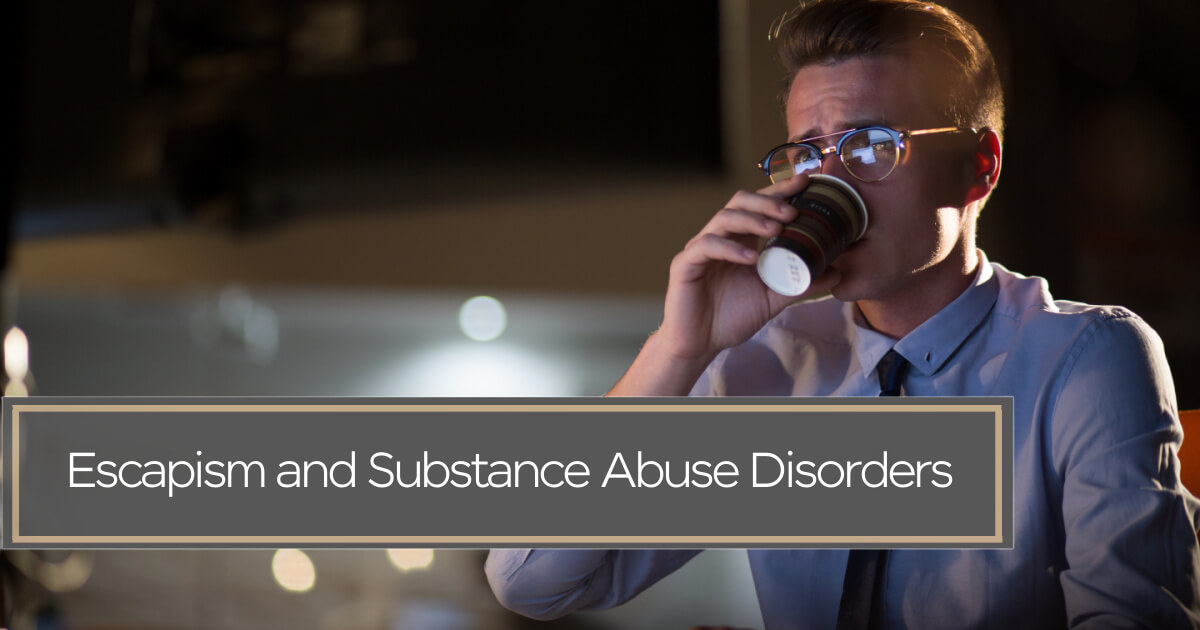For many, coping with stress or emotional issues can often feel a bit overwhelming and many people turn to escapism to deal with the difficult emotions that they’re experiencing but prefer to avoid. Escapism type behaviors can seem harmless at first but often develop into unhealthy routine patterns over time. These behaviors may lead to substance abuse or other addictive tendencies for some people. Knowing what escapism is and learning how to manage it is imperative to developing healthier coping mechanisms.
What is Escapism?
Escapism refers to the act of avoiding reality or unpleasant emotions by focusing on distractions. People engage in this behavior to suppress emotions or to escape from life’s stressors. While doing so may provide temporary relief, distractions often delay confronting the underlying issue(s). Over time, escapism can contribute to addictive behaviors, such as substance abuse.
Escapism takes many shapes and forms. Some types of escapism seem to be positive at first glance, but they may eventually become part of an unhealthy routine. Working too much, exercising all of the time, and excessive media use are just a few examples of escapism. Substance abuse is another all-too-common escape. Here is a more detailed breakdown of a few of the more popular escapism behaviors.
Overwork
Work can serve as an effective distraction from emotional pain. However, excessive work can create addiction behavior patterns. Overworking as a coping mechanism often masks deeper struggles. Finding the right balance between work and free time is key to avoiding this issue.
Physical Activity
Exercise offers a healthy way to manage stress but overdoing it can turn into another form of escapism. Relying solely on physical activity to suppress emotions may prevent personal growth. Getting enough physical activity is important to help promote good health but one should not come to rely on exercising for many hours each and every day as a way of coping, or to avoid dealing with difficult emotions.
Media Use
Streaming shows, playing video games, or endlessly scrolling through social media are common forms of escapism as well. While these activities may be enjoyable and informative in moderation, they can also lead to addiction when used consistently as a coping mechanism. Too many people use these various forms of media activities to avoid dealing with difficult emotions.
Substance Use and Other Addictive Behaviors
Substance use is one of the most harmful forms of escapism. People often turn to drugs or alcohol to numb emotional pain or to avoid reality. This type of behavior can lead to substance abuse disorders, which typically require professional substance use disorder treatment to overcome. Gambling can also be considered a form of escapism, especially when the gambler uses the activity as a way to escape dealing with difficult emotions.
Distracting Oneself from Reality or Unpleasant Emotions
Escapism behaviors often revolve around distracting oneself from reality. Some prefer binge-watching TV, while others use drugs. The goal here is often the same, to avoid the discomfort of dealing with difficult emotions. This reliance on distractions can worsen emotional pain over time and often creates addiction behavior patterns. Eventually, this type of behavior can spiral into addiction, making it even harder to manage stress in a healthy way.
How to Stop Using Escapism as a Coping Mechanism
Replacing escapism with healthy coping mechanisms takes effort, but it’s possible. Consider starting by recognizing/acknowledging the various triggers that lead to escapism. Pay attention to when stress or emotional issues drive certain behaviors. Developing healthy, or at least healthier, ways to manage stress is crucial to breaking this cycle. Techniques of dealing with stress, such as journaling, talking to a friend, or practicing mindfulness, can be effective alternatives. These habits often help process emotions instead of suppressing them.
Final Thoughts About Substance Abuse and Coping Mechanisms
Seeking help for substance use disorder treatment is essential if addiction escapism has taken hold of your behavior. Professionals commonly provide addiction coping mechanisms and much-needed support. Substance abuse disorders often require therapy, medical intervention, and long-term commitment to recovery. Escapism may feel like a quick fix to avoid emotional issues, but it often leads to deeper issues in the long term.
Substance abuse, addiction behavior patterns, and other harmful habits may stem from unchecked escapism behaviors. Learning how to stop using escapism as a coping mechanism is critical to help support better mental health. Healthy coping mechanisms for addiction and stress may help address the root causes of mental anguish. Treating substance use disorders and adopting healthy techniques for dealing with stress can make it possible for people to break free from the cycle of addiction and escapism.



